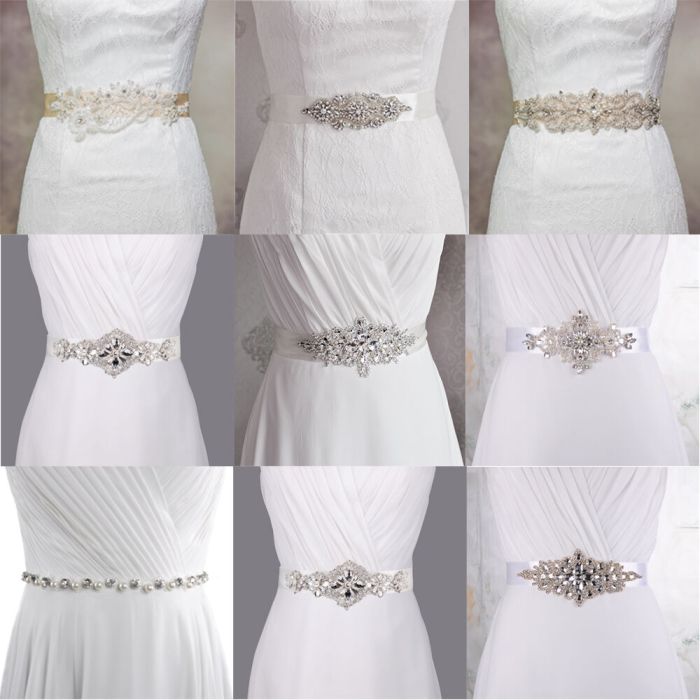Finding Reputable Dry Cleaners
Dry cleaner wedding dress – Choosing the right dry cleaner for your precious wedding gown is crucial. A reputable cleaner will ensure your dress is handled with care and expertise, preserving its beauty for years to come. Several factors contribute to identifying a trustworthy establishment.
Key Factors in Choosing a Dry Cleaner
When selecting a dry cleaner specializing in wedding dress cleaning, consider these three key aspects: experience and specialization in wedding gown cleaning; customer reviews and testimonials; and insurance and guarantees offered. A cleaner with extensive experience in handling delicate fabrics and intricate designs will be better equipped to address the specific challenges posed by wedding dresses. Positive customer feedback provides valuable insights into the cleaner’s reliability and the quality of their services.
Finally, a reputable cleaner will typically offer insurance to cover any unforeseen damages during the cleaning process and provide guarantees on their work.
Comparing Dry Cleaner Services
Local dry cleaners often offer convenient and affordable options, but their expertise in handling wedding gowns might vary. Specialized bridal boutiques, on the other hand, typically possess more experience and may offer more specialized services, such as preservation and restoration. However, their services might be pricier.
Checklist for Evaluating Dry Cleaner Reputation
- Years of experience in wedding gown cleaning
- Number of positive online reviews and testimonials
- Insurance coverage for damages
- Guarantee on cleaning services
- Detailed cleaning process explanation
- Transparency regarding pricing and additional charges
- Availability of before-and-after photos of cleaned gowns
Wedding Dress Cleaning Methods
Several methods exist for cleaning wedding dresses, each with its advantages and disadvantages depending on the fabric and the level of soiling. Understanding these methods is essential for making an informed decision about the best approach for your dress.
Cleaning Methods and Fabric Considerations
Wet cleaning involves immersing the dress in a specialized solution to remove dirt and stains. Dry cleaning utilizes solvents to clean the garment without water. Spot cleaning focuses on treating specific stains or soiled areas. Silk, lace, and satin, common wedding dress fabrics, react differently to these methods. Silk, for example, is particularly delicate and may require specialized wet cleaning techniques to avoid damage.
Lace, due to its intricate structure, may require careful hand cleaning or spot cleaning to prevent tearing. Satin, while relatively durable, can be prone to discoloration if not cleaned properly.
Fabric Reactions and Potential Risks
For instance, using harsh chemicals on silk can lead to discoloration or weakening of the fibers. Aggressive cleaning methods on delicate lace can damage its intricate design. Improper handling during wet cleaning can cause shrinkage or stretching in satin fabrics. Therefore, choosing the appropriate cleaning method based on the fabric composition is critical.
Pre-Cleaning Preparations
Proper preparation of your wedding dress before sending it to a dry cleaner is essential for ensuring a successful cleaning process and minimizing the risk of damage. This involves a series of steps to protect your gown.
Preparing the Wedding Dress for Cleaning
Before sending your dress, gently remove any loose debris, such as petals or confetti, using a soft brush. Carefully examine the dress for stains, noting their location and type. This information should be communicated to the dry cleaner.
Items to Include with the Dress
Include any detachable accessories such as buttons, beads, or embellishments that might have come loose during the wedding. This ensures they are properly cleaned and reattached. If possible, provide a small swatch of the fabric from an inconspicuous area for testing cleaning methods.
Packaging the Wedding Dress for Transport, Dry cleaner wedding dress

Source: co.uk
Wrap the dress in acid-free tissue paper to prevent creasing and protect delicate embellishments. Place it in a breathable garment bag, avoiding plastic bags which can trap moisture. Use a sturdy box to protect it during shipping or transport to the dry cleaner.
Post-Cleaning Care & Storage
Proper storage is critical to maintaining the condition of your cleaned wedding dress. Different storage methods offer varying levels of protection and longevity.
Storage Methods for Wedding Gowns
Acid-free tissue paper and breathable garment bags provide optimal protection against moisture, light, and pests. Storing the dress in a cool, dark, and dry place minimizes the risk of damage.
Comparison of Storage Solutions
| Storage Method | Protection Level | Cost | Longevity |
|---|---|---|---|
| Acid-free tissue & garment bag | High | Low to Moderate | High |
| Preservation box | High | Moderate to High | High |
| Vacuum-sealed bag | Low | Low | Low |
| Regular garment bag | Low to Moderate | Low | Moderate |
Addressing Minor Issues After Cleaning
Minor wrinkles can often be removed by steaming or pressing the garment carefully. Loose beads or embellishments can be reattached using a needle and thread. For more significant issues, consult the dry cleaner.
Addressing Stains & Damages
Wedding dresses are susceptible to various stains and damages. Knowing how to address these issues before and after cleaning is crucial.
Common Stains and Removal Methods

Source: bibbentuckers.com
Common stains include wine, grass, and makeup. Effective removal methods vary depending on the stain and fabric. For example, a mild detergent and water solution might be suitable for grass stains on cotton, while a specialized stain remover may be needed for wine stains on silk.
Documenting Existing Damage
Before sending the dress, photograph any existing stains or damages, noting their location and size. This provides a record and helps avoid disputes with the cleaner.
Communicating with the Dry Cleaner
Clearly communicate any existing stains or damages to the dry cleaner, providing photos and descriptions. This ensures they are aware of the issues and can take appropriate precautions during cleaning.
Cost & Pricing Considerations
The cost of wedding dress cleaning varies depending on several factors. Understanding these factors can help you budget effectively.
Price Ranges for Wedding Dress Cleaning
Prices typically range from $100 to $500 or more, depending on the dress’s size, fabric, and the extent of cleaning required. Specialized preservation services can cost significantly more.
Finding a reputable dry cleaner for your wedding dress is crucial; you want to ensure its preservation for years to come. The level of care required is evident when considering the exquisite detail in gowns like the one worn by Radhika Merchant, a truly stunning example, as seen on radhika merchant wedding dress websites. Therefore, choosing a dry cleaner with experience handling delicate fabrics is paramount to maintain the pristine condition of your own special dress.
Proper cleaning ensures your dress remains a cherished keepsake.
Factors Influencing Cleaning Costs
- Dress size and complexity
- Fabric type and delicacy
- Extent of soiling and staining
- Type of cleaning method used
- Additional services (e.g., preservation, repairs)
Negotiating Pricing
While negotiating, focus on the quality of service and the cleaner’s expertise, not just the price. Inquire about discounts or package deals. Remember, a higher price doesn’t always guarantee better quality, but a reputable cleaner will justify their pricing.
Alternative Preservation Methods: Dry Cleaner Wedding Dress
Beyond dry cleaning, professional preservation services offer a more comprehensive approach to long-term preservation.
Alternative Preservation Methods
Professional preservation involves cleaning, restoration, and packaging the dress in an archival-quality box to protect it from environmental factors.
Comparing Preservation Methods
Professional preservation is more expensive than dry cleaning but offers superior protection and longevity. Dry cleaning alone may not prevent yellowing or deterioration over time.
Long-Term Implications
Choosing professional preservation ensures the dress remains in excellent condition for decades, while dry cleaning alone may require re-cleaning or repairs over time.
Question & Answer Hub
Can I wash my wedding dress at home?
Generally, no. At-home washing methods risk damaging delicate fabrics and embellishments. Professional cleaning is highly recommended.
How long does wedding dress dry cleaning take?
The turnaround time varies depending on the cleaner and the complexity of the cleaning process. Expect a timeframe of several weeks.
What if my wedding dress has beading or embellishments?
Inform your dry cleaner about any embellishments beforehand. Some cleaners specialize in handling delicate details; others may not be equipped to handle them.
What is the difference between wet cleaning and dry cleaning for a wedding dress?
Wet cleaning uses water-based solutions, better for some delicate fabrics, while dry cleaning uses solvents, ideal for others. Your cleaner will recommend the best method based on the fabric.

